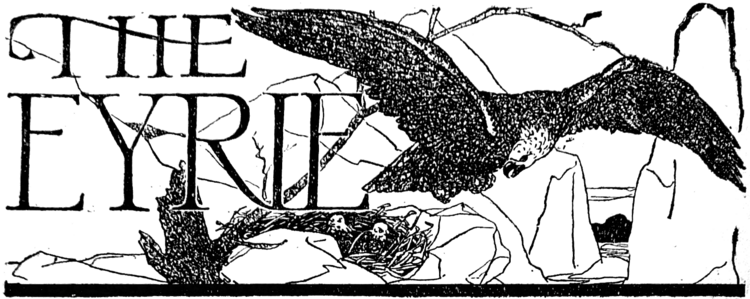
Fantasy Versus Philosophy
Recently Mr. Howard Brenton MacDonald, M.A., of Yonkers, N.Y., wrote us a very interesting letter about Reincarnation and its rather involved by-paths, pointing out that Robert Bloch—in his story Beauty's Beast (May issue)—had, in his opinion, got his philosophy rather mixed up; so we sent his letter on for Mr. Bloch's answer. First, here is the philosopher's side of things:
In Beauty's Beast Robert Bloch has his Hindu philosophy a trifle mixed. He is confusing Transmigration with Reincarnation when he says that the souls of humans go into animals. The pure Doctrine of Reincarnation, which is one of the oldest and greatest of all human teachings, says that the human soul passes through a series of human bodies, in a sort of spiritual evolution until, having learned all there is to know, it merge in with God at the end of its Cycle of Necessity. Transmigration is a degraded perversion of this in that it says that human souls may be born again in animal bodies. This, however, is not accepted by any serious-minded Hindu authority, or student, although it is held by many uneducated people in India. But even granting the idea of Transmigration, Mr. Bloch is at fault in saying that means that a human soul can pass directly into the body of a living animal, us is the case in his story; because no doctrine of the Orient that I know of teaches such. If it goes into an animal at all (and only Transmigration teaches this) the soul does so into the body of a newly born creature, not a living one such a the snake or monkey in his yarn.
Reincarnation likewise is concerned only with the journey of the human soul through the earthly human bodies, and not through the lower kingdoms. In the lower forms of life there is no such thing as an individual, or individualized personality. Cats, dogs, plants, and minerals all have one large soul apiece; but no animal, plant, or mineral has a separate individual soul such as a human being has.
This is a very complicated question, but a most fascinating one. I have enjoyed all of Mr. Bloch's stories in the past, and am now delighted to see that he has become interested in the Hindu philosophies. If Mr. Bloch will continue his studies of Hinduism, Yoga, and Oriental cultism, he will find enough material for a thousand weird tales. So can all writers.
And now, here is—
The Author's Viewpoint
It was with considerable interest that I noted the remarks of Mr. Howard B. MacDonald regarding Beauty's Beast. I am in total accord with his findings, except for the first sentence, in which he declares I have my Hindu philosophy "a trifle mixed."
I choose to resent that. My Hindu philosophy was not a trifle mixed, but completely mixed. More than a mere confusion of Transmigration with Reincarnation, but an almost complete hash of both concepts. Reader MacDonald is to be congratulated upon his astuteness in this matter.
However, I plead guilty on counts of willful premeditation. I am aware, as Mr. MacDonald points out, that Transmigration is a sort of degraded perversion of the doctrine of Reincarnation—and for the sake of the yarn I perverted it further. The tale dealt, you may remember, with a priest of Yama—the equivalent of an Occidental devil-worshipper. Devil-worship certainly is a religious perversion. Its doctrines are definitely at odds with recognized Christian theology. Yet in a weird tale,
